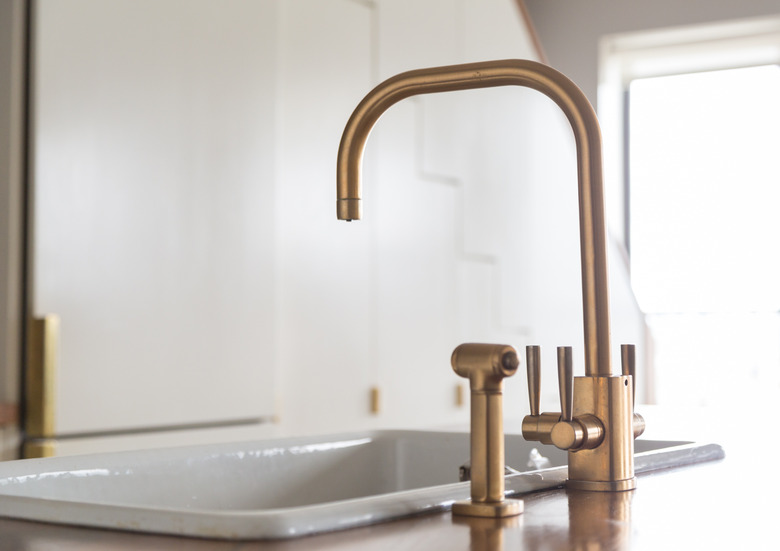A Basic Homeowner's Plumbing Kit: What You Should Have
You shouldn't be overly reliant on professional help to maintain your home's plumbing system and make small repairs. Plumbers are expensive and are often too busy to respond to emergency calls. Besides, you can often fix something that appears to be a major catastrophe, such as an overflowing toilet, by yourself, provided you are equipped for the job. If you're like most homeowners, you have a utility closet stocked with basic home repair tools for all kinds of small jobs. Here's what you should keep on the shelf devoted to plumbing tools.
Leak Repair and Faucet Servicing Tools
Leak Repair and Faucet Servicing Tools
Small leaks from water supply lines and drain pipes can lead to big problems, such as rot and mold, but many of these are easy to fix. Sometimes all it takes is to tighten a loose connection. DIY-savvy homeowners can fix faucet leaks and malfunctions themselves and save an expensive service call for what amounts to a 5-minute procedure. Here are the tools you need to fix leaks:
- Slip-lock pliers: Often known by the brand name Channel Locks, slip-lock pliers can be adjusted to grip wide pipes as well as narrow ones. It's a good idea to have two pairs, because you often need to hold a pipe steady with one pair while you tighten the connection with the other.
- Pipe wrench: When it comes to turning stubborn metal connection, nothing works as well as a pipe wrench. You should have a medium-sized one, with a handle that is at least 8 inches long.
- Multi-driver: Faucet repairs inevitably involve the removal and replacement of screws. You'll find multiple other uses for a screwdriver with interchangeable bits.
- Hacksaw: You need a saw that cuts plastic pipes as well as copper ones, and a hacksaw fits the bill.
- Head lamp: You need light when working under sinks or diagnosing problems in dark places.
Drain Clearing Tools
Drain Clearing Tools
If you can fix leaks yourself, you can definitely clear drains, and the toolkit for this task is uncomplicated.
- Plungers: You need more than one. A sink plunger has the familiar half-dome shape people normally associate with plungers. A toilet plunger, on the other hand, has a bell or accordion shape and a cup that fits inside the toilet inlet.
- Snake: Again, toilet and sink augers—also called _snakes_—are different, and you should have one of each. If you only have room for one, make it a toilet auger. You have options other than snaking, such as P-trap disassembly, to clear a sink drain.
- Plastic hair snagger: Sold under brand names such as Zip-It, these inexpensive ribbed cable ties are de rigeur in any home that has people with hair. Clogged drain? Insert the hair snagger in the drain, pull out the hair and debris it has collected and, more often than not, clog busted!
Plumbing Supplies
Plumbing Supplies
There isn't much advantage to keeping spare pipe fittings and faucet parts because you usually buy these on an as-needed basis. However, a few basic supplies that you'll probably use frequently can reduce the frequency of trips to the hardware store.
- Plumbing tape: Also known by the brand name Teflon tape, this white pipe wrapping is the best material for sealing threaded water connections. It's inexpensive, so keep a couple of rolls on hand.
- Plumbing grease: Use this to lubricate rubber parts, such as O-rings and gaskets, when you do faucet repair.
- Scale dissolver: Whether it's a commercial product such as CRC or plain vinegar, which works as well, it's handy to have a solvent in which to soak faucet parts that have become clogged by scale.
For Plumbing Enthusiasts Only
For Plumbing Enthusiasts Only
You may be one of those rare people who actually likes plumbing. If so, you'll have the know-how and skill to add a few extra tools in your kit to make the most of your enthusiasm.
- Power drill: If you install any of your own plumbing, you'll be boring holes and driving fasteners.
- Basin wrench: This telescoping specialty wrench allows you to reach hard-to-access faucet connections.
- Soldering supplies: When making repairs to copper pipes, you need a propane torch, flux and lead-free solder.
- Plastic pipe cement: Adhesives for PVC and ABS pipes are different, so it helps to have a can of each.Keep the cans well sealed to prevent the glue from hardening.
- Tubing cutter: When working with copper pipe, a tubing cutter makes a cleaner cut than a hacksaw.
